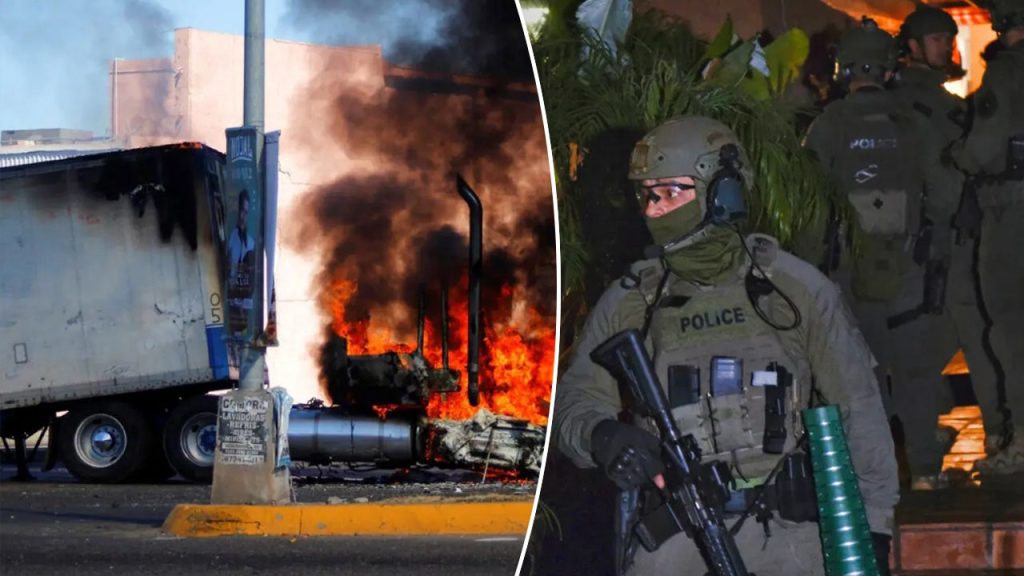The U.S. Drug Enforcement Administration released a report in May stating that Mexico’s most powerful and ruthless cartels, such as Jalisco and Sinaloa, operate in all 50 states and clash in American cities. These cartels have flooded major U.S. cities with meth and fentanyl and use violence to protect their turf. The report highlights the extensive reach of these cartels into U.S. communities and how they have caused the worst drug crisis in U.S. history. The cartels infiltrate American markets and control all aspects of the drug trade from production to delivery through the use of synthetic drugs like fentanyl, which are more potent, cheaper to make, and easier to move.
The DEA’s National Drug Threat Assessment report details the leadership structures, territories, operational tactics, and global reach of the Jalisco and Sinaloa cartels. These cartels have reportedly eliminated competition in U.S. markets and dictate the flow of nearly all illicit drugs into the country. Recent operations have led to the arrest of cartel members involved in supplying drugs such as Mexican-made fentanyl pills. Law enforcement efforts have also uncovered weapons-smuggling operations and large quantities of drugs such as fentanyl, crystal meth, and cocaine along with firearms.
In April, 12 traffickers connected to the Jalisco cartel were sentenced to federal prison for coordinating a major drug shipment in Texas, while DEA operations like Last Mile and Overdrive led to the arrest of thousands of cartel members and the seizure of substantial amounts of drugs, firearms, and cash. Fentanyl-related deaths are on the rise, highlighting the severity of the crisis caused by these cartels. The DEA continues its efforts to target violent dealers involved in the distribution of deadly drugs like fentanyl, particularly in violence- and overdose-plagued cities.
Mexican President Andrés Manuel López Obrador has been criticized for downplaying cartel violence and criminal activities in Mexico despite the significant impact these cartels have on the U.S. His government has been reluctant to take action against the cartels, leading to concerns about their influence and reach. The arrest and subsequent release of El Mencho’s brother by Mexican authorities raised questions about the government’s willingness to combat the cartels effectively. Private investigators and experts warn of potential violence campaigns and the threats posed by cartels like Jalisco, which have displayed terrifying tactics in the past.
Violent incidents involving the capture and release of cartel members, such as El Chapo’s son and El Mencho’s brother, showcase the capabilities of these cartels to retaliate and cause chaos when their members are apprehended. The Jalisco cartel, in particular, has been described as a dangerous enemy capable of achieving its objectives without resorting to brute force. The tense situations created during these incidents pose challenges for law enforcement and underscore the need for effective strategies to combat cartel activities and protect communities from the devastating impact of drugs like fentanyl. Overall, the DEA’s ongoing efforts to target cartel operations and disrupt their networks are crucial in addressing the drug crisis in the U.S. and tackling the threat posed by these powerful criminal organizations.


